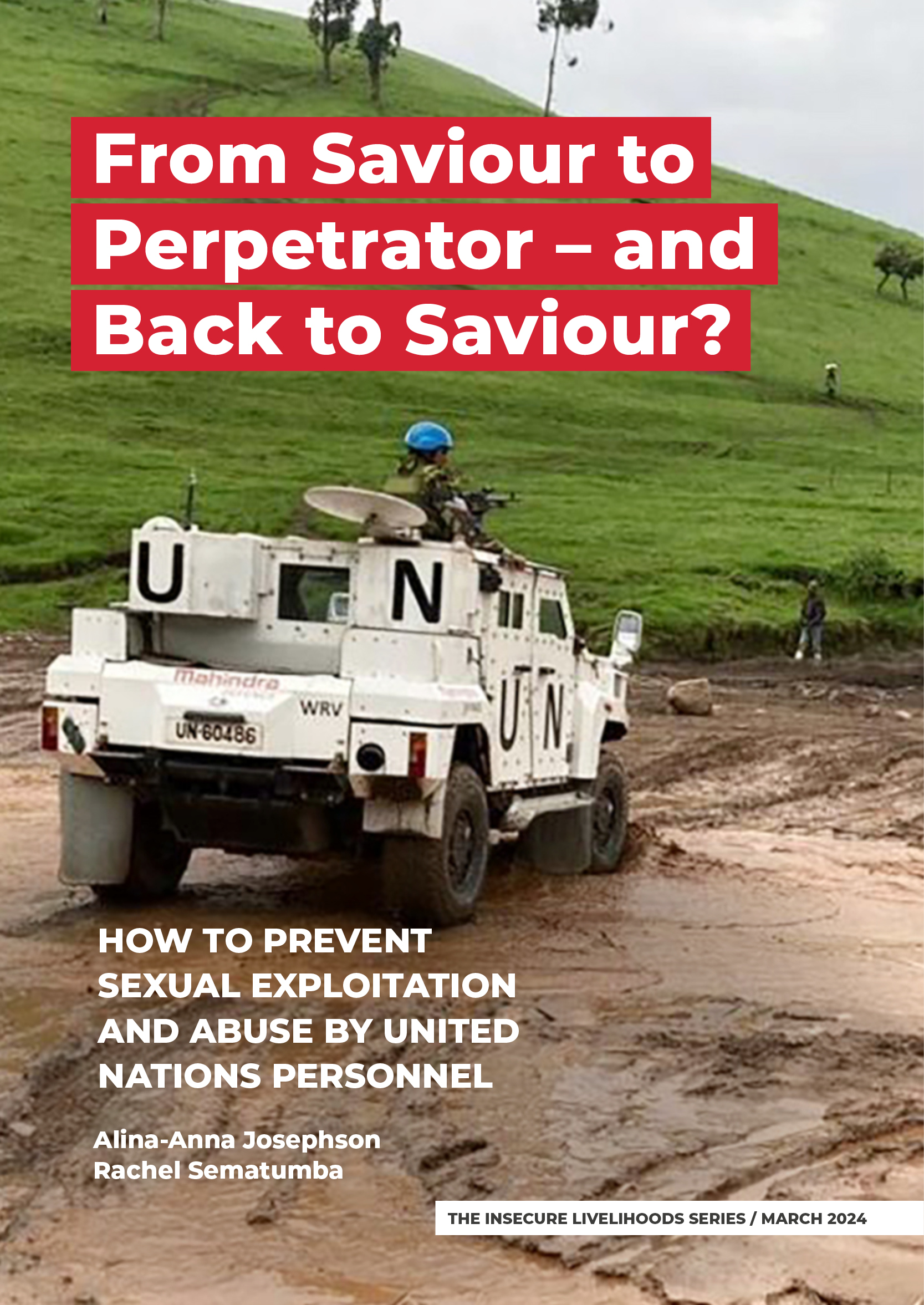From Saviour to Perpetrator and Back to Saviour?
Sexual exploitation and abuse (SEA) by United Nations (UN) personnel was first documented in the Democratic Republic of the Congo (DRC) in 2004 (Larson & Dodds 2017) and has since been a violation the organization has been criticized for (Felter & Renwick 2021). Although there is no unified defi- nition of the broader concept of sexual violence, the UN has its definition for SEA. “Sexual exploitation” is defined as any possible power or trust abuse for sexual purposes as well as other abusive manipulative forms of sexual violence; and “sexual abuse” is defined as the actual or threatened physical intrusion of a sexual nature, whether by force or under unequal or coercive conditions (United Nations Secretariat 2003: 1). Despite numerous preventive measures implemented by the UN, some of which have been successful, the issue is still very prevalent (United Nations 2022b).
Addressing the case of the eastern DRC, this paper attempts to find new ways of addressing SEA by focusing on grassroots solutions and the perspectives of diverse actors. The outcomes of the analysis conclude a set of suggestions focusing on justice, education, empowerment, institutional change, and a shift in the UN-DRC relationship that can be summarized into the following recommendations:
- Protecting UN employees from SEA. The UN needs to address the SEA cases against their own personnel and put educational and monitoring measures in place, as well as provide psychological support.
- Further and broader educational policies, especially on sexual violence. The emphasis on education and sensitization of sexual violence needs to be further targeted, especially by covering the current loopholes and grey areas.
- Transforming the way perpetrators are prosecuted and how justice is served. An example would be prosecuting the perpetrators in the region where the misconduct occurred. This would require cooperation between national actors and the UN.
- Empowering impoverished vulnerable groups and narrowing inequality between international and national actors. This could be achieved through further education, investments in jobs, as well as providing a living wage.
- UN employee-based community building and giving back to the host popu- lation and its communities.




